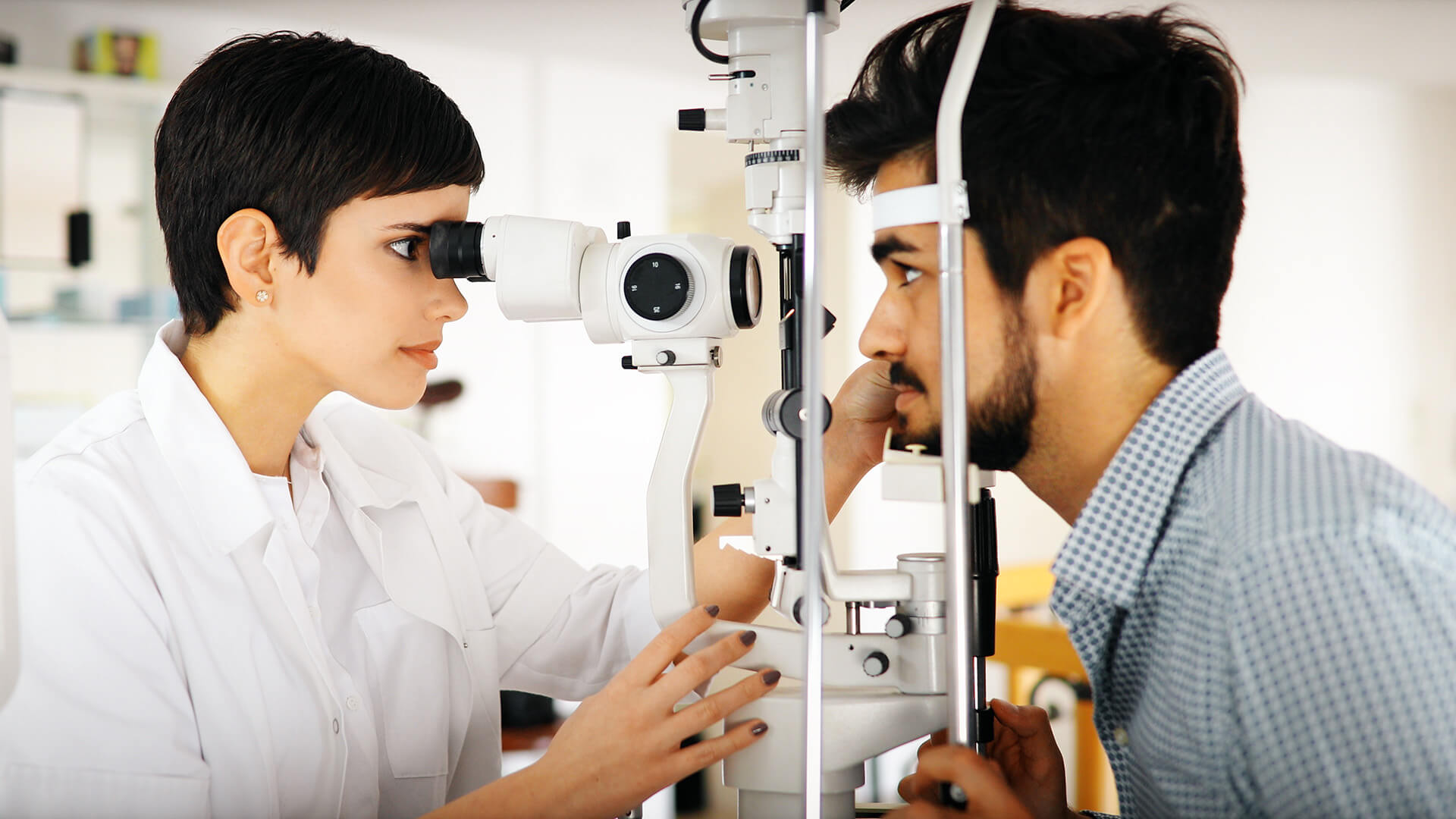Published Sep 10, 2024 | 7:00 AM ⚊ Updated Sep 10, 2024 | 9:20 AM

Representational image of eye check up at a hospital.
If you’re one among millions who rely on contact lenses for clear vision, you might have asked yourself the question, Am I cleaning my lenses properly?
Shortcuts are easy and comfortable, especially after a long day. A quick rinse, or skipping steps in your lens care routine, might seem harmless, but in reality, it could lead to serious health problems for the eyes down the road, as actor Jasmin Bhasin learnt the hard way.
Wearing lenses caused corneal damage to the actor. She is now “out of the danger zone”.
Speaking to South First, Dr Ravindra Mohan, Honorary Professor of Ophthalmology at Dr MGR Medical University and Director of Trinethra Eye Care in Chennai, explained that “Contact lenses are a thin disc of plastic. They are mainly of two types: soft and hard contact lenses. Millions of people worldwide use them. In the US, nearly 41 million people use these lenses”.
It comes into intimate contact with the cornea and any infection could be dangerous. Since the contacts are a foreign body, utmost care must be taken to ensure its hygiene, failing which there can be a serious infection in the eye.
The contact lenses come into direct contact with one of the most sensitive parts of your body—the eyes. Failing to properly clean them can introduce bacteria, fungi, and other harmful microorganisms, leading to infections. The infections could sometimes be severe enough to cause corneal damage, leading to permanent vision impairment or loss.
Eye infections related to improper contact lens hygiene are more common than one might anticipate. Studies have shown that skipping even one step in the recommended cleaning process significantly increases the risk of complications. Forgetting to wash your hands before handling the lenses or using water instead of a proper lens solution could invite bacteria into your eyes.
Dr Veerabhadra of Bangalore Nethralaya listed some of the common mistakes people make while taking shortcuts for cleaning the lenses, without realising the potential harm.
Reusing solution: Topping off the solution in your lens case instead of using fresh solution each time can create a breeding ground for bacteria.
Not cleaning the case: Though the contacts are cleaned, people often forget to clean the lens case regularly. Failing to clean and dry the case properly can lead to contamination.
Using water: Whether rinsing lenses in tap water or showering while wearing contacts, water can introduce harmful microorganisms into the eyes, including Acanthamoeba, a microbe that can cause severe eye infections.
Wearing lenses for too long: Overwearing lenses, especially without regular cleaning, increase the risk of eye irritation, dryness, and infection.
Proper lens hygiene is simple and takes only a few extra minutes each day. Dr Veerabhadra explained the basic steps:
Various kinds of contact lenses are now available. For instance, some are daily wear contact lenses that need to be worn in the morning, cleaned, and kept aside at night. They are used for a particular time of the day as per the manufacturer’s advice and they are replaced regularly.
Another type is the daily disposable ones. Yet another type is extendable wear contact lenses which one can even wear overnight and need to be taken off once a week or so for cleaning.
All contact lenses need to be cared for and meticulously cleaned as per the manufacturer’s instructions. So, they should be cleaned using the recommended solution and not water. They must be discarded after the recommended period. If accidentally exposed to water, they must be discarded.
No, said Dr Ravindra Mohan. Those wearing contact lenses should never sleep wearing them. He elaborated on the 4Ds:
Contacted lenses should be discarded and glasses should be used if the eyes are painful, red, watery, irritated, and not able to tolerate light. These symptoms indicate a possible f infection. Wearing contacts and ignoring the symptoms could lead to serious infection, including a bright spot at the back of the eye, like a corneal ulcer. It can even lead to loss of eye.
Dr Mohan said that many studies have shown not all contact lens users are careful. About 40-90 percent of contact lens users do not follow the care instructions properly. One in 500 contact lens users has developed serious infections due to negligence in taking care of their contacts. Not replacing them at regular intervals could lead to bacterial infections, ulceration, and loss of eye.
He also warned against Acanthamoeba. It is a microscopic, free-living amoeba commonly found in water, soil, and air. While generally harmless to most people, it could cause a rare but serious infection in the eye called Acanthamoeba keratitis, especially in contact lens users.
“This infection occurs when the amoeba enters the cornea—the transparent outer layer of the eye—and can lead to severe pain, inflammation, and, if left untreated, might lead to permanent vision loss,” Dr Mohan warned.
Acanthamoeba could infect the eyes through improper contact lens hygiene, particularly when lenses come into contact with water. This includes rinsing lenses with tap water, swimming or showering while wearing them, or even storing lenses in contaminated water.
Once the amoeba attaches to the surface of the lens or the lens case, it makes its way to the cornea.
Ophthalmologists explained that, unlike other infections, Acanthamoeba keratitis could be difficult to treat. The amoeba could form a tough outer layer, making it resistant to medications.
If not detected early, the infection could lead to the formation of corneal ulcers and scarring, potentially requiring a corneal transplant in severe cases. In rare instances, untreated infections lead to permanent blindness.
(Edited by Majnu Babu).

